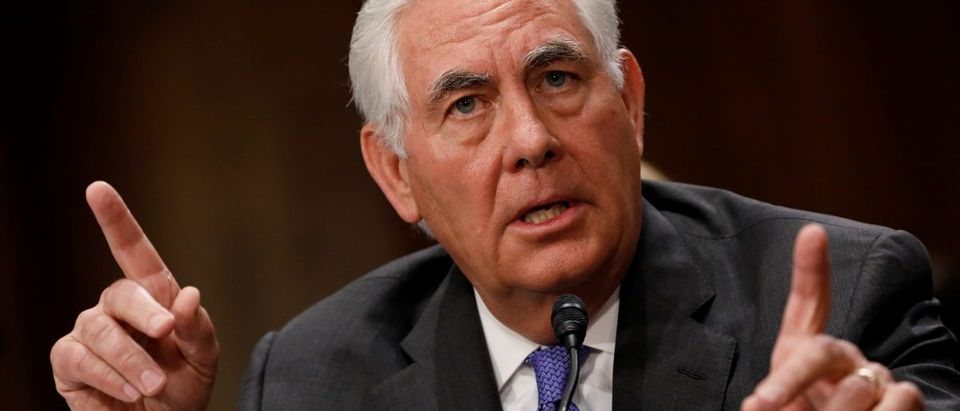Secretary of State Rex Tillerson has warned that demands made by various Middle Eastern and Northern African countries against Qatar will be “very difficult” to meet.
Harsh sanctions remain imposed against the gulf country by a Saudi led coalition of states for Qatar’s alleged state sponsoring of terror organizations, and a total of 13 demands will need to be met if economic and diplomatic relations are to open again with its Middle Eastern neighbors.
Fox News reported last week that among the demands are that Qatar would shut down the media outlet Al-Jazeera, cut ties with the Muslim Brotherhood, and remove its military base in Turkey. And if the country were to meet these demands before the upcoming deadline, it will be subject to audits for compliance at regular intervals for the next decade.
In a Wall Street Journal interview on Sunday, Secretary Tillerson, who has called for mediated peace as the side address their grievances, addressed these demands saying “While some of the elements will be very difficult for Qatar to meet, there are significant areas which provide a basis for ongoing dialogue leading to resolution.”
The secretary went on to reiterate the U.S.’s position that “our allies and partners are stronger when they are working together towards one goal which we all agree is stopping terrorism and countering extremism,” and that if any long-term resolutions are to be achieved, then “a productive next step would be for each of the countries to sit together and continue this conversation.”
The White House has been divided on its stance towards the blockade, with President Donald Trump endorsing the Saudi led efforts against a nation that he describes as a “funder of terrorism at a very high level.” This hardline stance goes against both Secretary of Defense James Mattis and Secretary Tillerson’s more diplomatic calls for an equitable solution among the Gulf States and their associates.
Secretary Tillerson’s more balanced stance on the conflict leaves open the possibility of Qatar not accepting all the offered terms, and opting to rather meet with the boycotting states at a U.S. endorsed mediation by the neutral state Kuwait.
While Secretary Tillerson will continue efforts to “ease the tension” by “lowering of rhetoric” of the conflict, the unwavering deadline set by the boycotting coalition continues to approach without any word on whether Qatar will agree to any of these terms and whether the rest of the Gulf States will entertain further negotiation.


